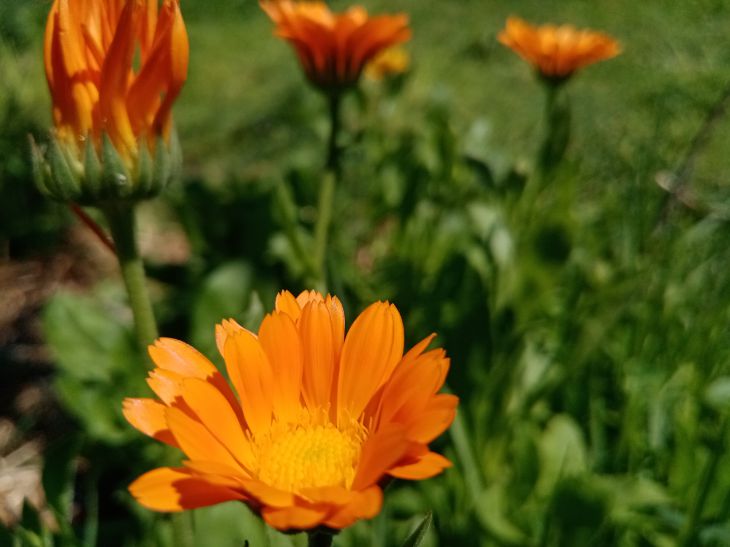Calendula, known to many as an unpretentious ornamental plant, contains many useful properties for the garden.
Bright orange inflorescences not only please the eye, but also perform important functions in the garden. Why is it worth paying attention to this sunny plant?
Anastasia Kovrizhnykh, an expert of the online publication "BelNovosti", a scientist, agronomist and landscape designer, spoke about the benefits of calendula.
Natural protector against pests
Calendula is considered a true guardian of the garden. Its pungent aroma repels many insect pests, including aphids, whiteflies and nematodes.
By planting calendula next to vegetable crops, gardeners create a natural barrier that protects plants from unwanted guests. Calendula is especially effective in protecting tomatoes, cabbage, and roses.

Attracting beneficial insects
Although calendula repels pests, it attracts beneficial insects.
Bees, bumblebees and butterflies flock to its bright flowers, helping pollinate other plants in the garden. Such a neighborhood improves crop yields and maintains the health of the site's ecosystem.
Companion for vegetable crops
Calendula combines well with various vegetable crops. It improves the growth and development of neighboring plants, releasing useful substances into the soil. Calendula interacts especially well with tomatoes, peppers and eggplants.
By planting it next to these crops, you can significantly increase their resistance to diseases and pests.
Phytosanitary properties
Calendula roots secrete substances that suppress the growth of pathogenic fungi and bacteria in the soil.
Due to this property, the plant helps prevent the development of root rot and other soil infections.
Regular cultivation of calendula in one area promotes natural soil health.
Green manure
After flowering, calendula can be used as green manure. By planting the plants in the soil, gardeners enrich it with organic matter and microelements.
This method improves the structure of the soil and increases its fertility, which has a beneficial effect on future plantings.
Medicinal properties
Calendula is not only a garden helper, but also a valuable medicinal plant.
Its flowers are rich in carotenoids, flavonoids and essential oils.
Gardeners can harvest the inflorescences to make infusions and decoctions that have anti-inflammatory and antiseptic properties.
Decorative element of the garden
In addition to its practical benefits, calendula is a wonderful decoration for the garden. Its bright flowers, blooming from early summer to late autumn, create sunny accents among the greenery of vegetable crops.
Calendula can be planted along paths, at the edges of beds, or used to create flowering borders.
Ease of growing
Calendula is famous for its unpretentiousness. It easily adapts to various types of soil and climate conditions.
The plant does not require special care, which makes it an ideal choice even for beginner gardeners. Having sown calendula once, you can enjoy its benefits and beauty for many years thanks to self-seeding.









